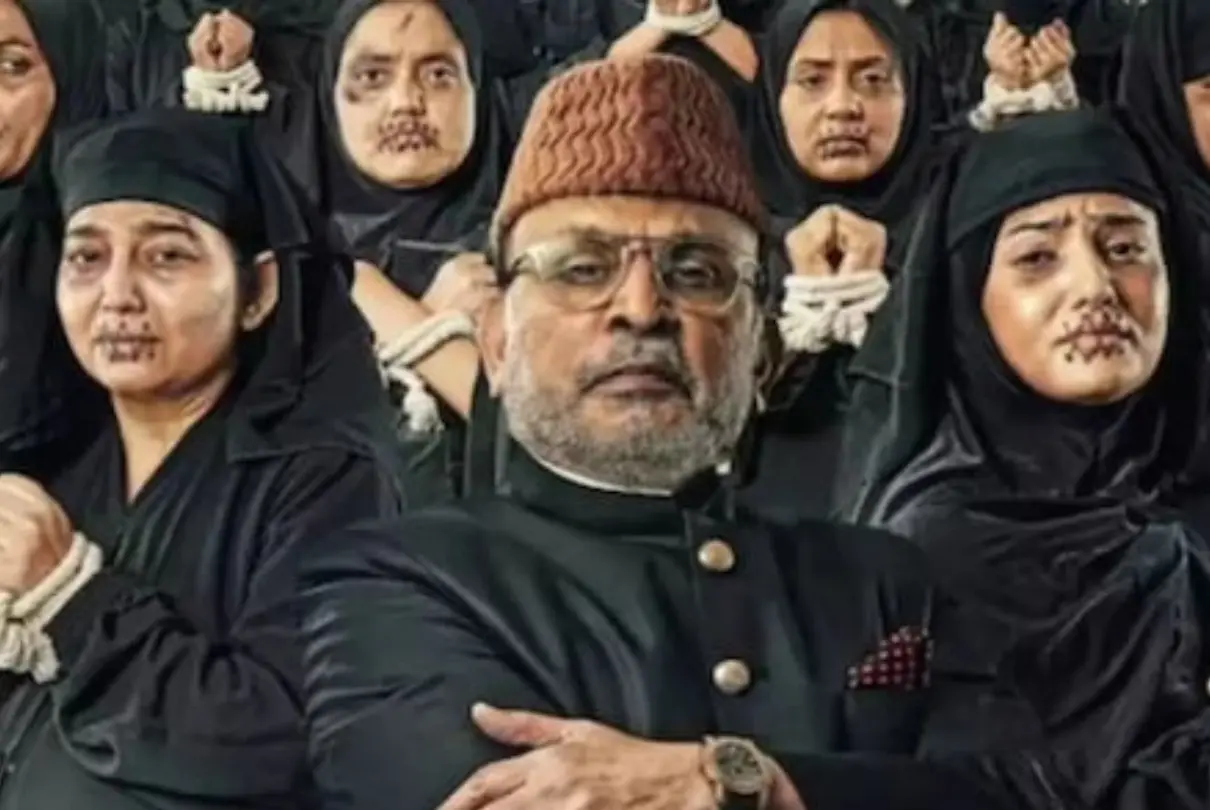Physical Address
304 North Cardinal St.
Dorchester Center, MA 02124

Hamare Baarah movie is set in Lucknow and is the story of a family which travails of 60-year-old Manzoor Ali Khan Sanjari (Annu Kapoor). He has lost his wife during childbirth. Then he marries Rukhsar (Ankita Dwivedi) and then is hell-bent to make his new wife pregnant for the sixth time despite of having medical warning which said she might die if she gets pregnant one more time. Manzoor already has 11 children whom he cannot take proper care due to his financial crisis. Then his daughter Alfia (Aditi Bhatpahri) files a FIR against his father to coerce her stepmother to terminate the risky pregnancy.
Hamare Baarah film is directed by Kamal Chandra. It casts actors like Annu Kapoor, Ashwini Kalsekar, Manoj Joshi, Paritosh Tripathi, Rahul Bagga, Aditi Bhatpahri, Ankita Dwivedi, Abhimanyu Singh in crucial roles.
The movie is a hard-hitting drama which is about the religious teachings in Islam relegion. The movie has a stretched narration which defines logic itself sometimes.
The script of the movie is by Rajan Agarwal. The script addresses the facts which are continuously misinterpreted by some of Islam’s prophets for their selfish or vested interests. These are they who provoke the simple-minded Muslims to toe in the wrong paths. This also keeps them away from socioeconomic progress and higher education. Also Read – Karnataka High Court Bans the Release of Hamare Baarah Movie States Reasons as the Move is to Avoid Spreading Communal Hatred
The script’s characterization underscores the hypocrisy and irony of a man who defends his clients against a progressive daughter’s demand for the safety of her stepmother.
The script then further drags interminably after the halfway mark. This can be probably just to show that even someone like Manzoor, programmed since childhood can later see the light. The ending of the film should be 20 minutes before it’s actual ending after Aafreen demolished all the defence arguments. But the director and the writer brought in fresh convolutions.
The film’s first half is spent only in setting up the characters and the story which deeply underlines the problematic family dynamics within the Sanjiri household. The film has a lot of characters entwined in the narrative but director Kamal Chandra and writer Rajan Agarwal stays on course with the story. The orthodox and unpopular views and actions of Khan Saab drives the narrative forward and reaches a flashpoint by the intermission. The movie then becomes a loud courtroom drama.
The story portrays Khan Saab to be the villain as he continues to force his views on the family despite of overwhelming resistance from them. He doesn’t stop at anything and does whatever he believes in the name of religion. Also Read – Cbfc Changes Annu Kapoor’s “hum Do Hamare Baarah” to “hamare Baarah”: Urging Makers to Remove or Replace Shocking and Controversial Dialogues
Annu Kapoor portrays his role with a jarring loud tone which gets overbearing very early in the film. But his rich Urdu dialect is pitch perfect. The wime in the film is portrayed to be sobbing sorry figures except Alfia (Aditi Bhatpahri) who portrays her part well. The scenes of the courtroom have moments of high tension and impact. Ashwini Kalsekar is impressive as the straight-talking prosecutor Aafreen, Manoj Joshi comes across more like a caricature devoid of realism. The half-baked love story between Alfia and journalist Danish (Parth Samthan) is an unnecessary distraction, much like the film’s extremely forgettable music score (by Annu Kapoor). The narrative’s religious undertones sometimes overshadow its broader message.
The film’s theme centres around women empowerment and challenges toxic male patriarchy. The film veers into a narrative which feels more life advocacy than entertainment.